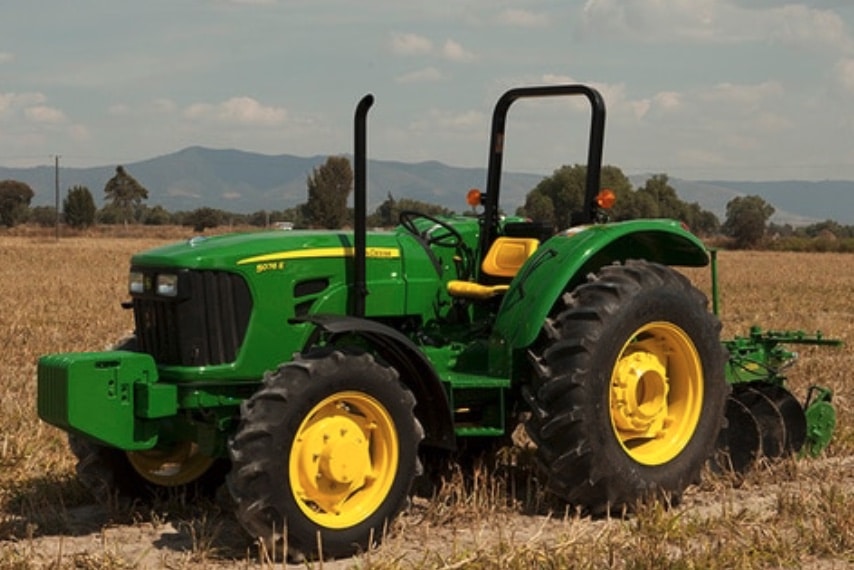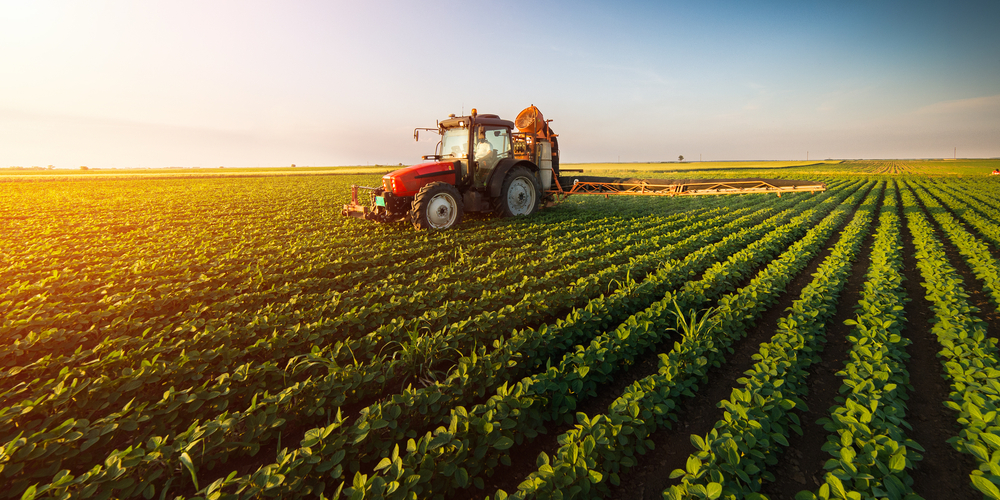Maintaining a property can be a blessing and curse at the same time. And if you have a vast amount of land at your disposal, purchasing a tractor might become a necessity.
After all, these machines reduce the amount of time you’ll need to spend on your yard to maintain it. Plus, it can make your life much easier by allowing you to carry construction materials or pull other machinery around.

All in all, a tractor might be a worthwhile investment if you need one. But if you’ve looked into buying one, you probably know it can be costly. But do tractors have titles?
And what should you know about getting legal proof of ownership when purchasing one? What happens if you only get a receipt after paying? Is that enough?
If all these questions give you headaches, don’t worry: we are here to help. Here, we condensed all the information you should familiarize yourself with when investing in a tractor.
And we have good news: buying such machinery is nothing like purchasing a car! But read on to learn about the details.
Do Tractors Have Titles?
Let’s get straight to the point. Titles are legal documents that clarify ownership of a motor vehicle.
And when you spend between $8,000 to $350,000 (yes, we know: it’s a lot!) to purchase a tractor, it is understandable from your side to expect to get a certificate defining your (or your business) as the new owner of the machine.
After all, you are spending quantities that might allow you to purchase a (titled) yacht or boat.
Getting a title isn’t complex for cars, motorcycles, and trucks. But what about tractors? The truth is that things don’t have to be so complicated when purchasing this type of machinery.
While some construction tractors might have titles, most don’t. And this is a double-edged sword.
Because it means less paperwork for you (hurray!) but deprives you of the peace of mind a title of ownership gives you. For instance, in case of theft or accident, you should have documents to prove you are the legal owner of the machine.
And if you don’t, things can get complicated. Plus, the lack of documentation is one of the main reasons buying a second-hand tractor can get challenging. Because not all tractors have titles, you never know about the origin of the item you are interested in (it might as well be a stolen vehicle, which can cause you plenty of trouble).
Why Don’t You Get A Title With A Tractor?
Besides the protection that a title gives you, the government uses the registration of a vehicle to collect annual fees and taxes from owners. And the money it collects maintains the local roads of the state.
Because tractors do not usually use roads, highways, and transportation networks regularly, they are not entitled to registration.
Titles include the vehicle identification number, make and type, model, manufacturing year, weight, and odometer reading. While you can find the same information in your tractor, you will not get an official document to register it with the authorities, which might cause you some issues if you need help from them.
What Proves You Are the Owner of A Tractor?
In most cases, the receipt you get when buying your tractor will be the only proof of ownership. Keep in mind that things might be different depending on where you live.
Some states have different rules that usually apply to heavy-duty tractors. Make sure you check your local regulations to stay on the safe side. For instance, tractors that weigh more than 18,000 pounds come with an ownership certificate in New Hampshire.
To stay on the safe side, keep the receipt of your purchase. And if you buy a second-hand machine, don’t forget to request one. Store the document in a safe place that you can easily access when necessary.
While this might sound obvious, avoid exposing the receipt to water or humidity: it might smudge the details of the transaction and make the piece of paper worthless.
If you need an extra step, have the seller write the receipt on a postcard directed to your home address: it will allow you to have the federal stamp as further evidence of your ownership.
For further protection, consider getting the serial number of your tractor: it will help authorities track down your machine if necessary. You can also get other details and register them with the authorities to smooth any process that might involve your tractor.
You can find your tractor’s serial number on the floor of the console seat, on the tombstone, on the chassis, on the frame in the engine compartment, behind the front wheel, on the chassis or transmission below the operator’s cab.
If these actions don’t satisfy you, consider going to a notary public: you’ll get more advice on the matter and the support you need to register your vehicle with the local authorities.
So, Do Tractors Have Titles?
So, to reiterate: no, most tractors don’t have titles, regardless of how much you pay to acquire yours. Not even buying an expensive tractor will guarantee an official ownership document. And if that sounds scary to you, you must follow the recommendations we included in this guide to secure the proof of ownership of your vehicle.
With tractors, where the investments can be considerably high, the transaction might (understandably) be stressful. Under such circumstances, it is best to be safe than sorry. And if that means storing a receipt or going to a notary, you should do that: it will save you lots of headaches (and stressful situations) if something happens to your tractor!
It might be a good idea to make photocopies of the seller’s IDA and attach them to your documents: you never know!
Also, consider taking a picture of the receipt and keeping it on your phone if you need to access it quickly one day. When buying a tractor, there’s usually a lot of money involved, so you should take all the possible precautions.
Related Article: John Deere D and E Series: What’s the Difference?

